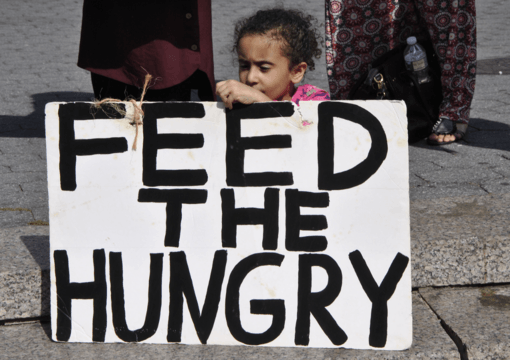Yemen: Today’s Guernica
MIDDLE EAST AND NORTH AFRICA, 4 Dec 2017
30 Nov 2017 – On the market day of April 26, 1937, at the bequest of General Francisco Franco, a bombing of the Basque town of Guernica took place. It was carried out by Spain’s nationalistic government allies, the Nazi German Luftwaffe’s Condor Legion and the Fascist Italian Aviazione Legionaria. The attack, under the code name Operation Rügen, in which hundreds of people died, became a rallying cry against the brutal killing of innocent civilians. 80 years later, however, an even more criminal action is carried out against Yemeni civilians mainly by Saudi Arabia, with the complicity of the United States.
The Yemeni civil war began in 2015 between two factions that claim to represent the Yemeni government. Houthi soldiers allied with forces loyal to the former president Ali Abdullah Saleh, clashed with forces loyal to the government of Abdrabbuh Mansur Hadi. A coalition led by Saudi Arabia launched military operations against the Houthis, and the U.S. provided logistical and military support for the campaign.
The Houthi rebels make up almost a third of Yemen, and have ruled the country for hundreds of years. Since the beginning of the hostilities, the Houthis advance to the south of Yemen has met with the constant bombardment by Saudi Arabia and its allies, resulting in a dramatic humanitarian crisis. Thousands of people have been killed, many of them civilians, and thousands more have been forced to leave their homes and are desperately trying to find food and potable water.
Contaminated water as a result of an almost total sanitation breakdown has provoked a cholera outbreak considered the worst in history. The World Health Organization (WHO) has reported more than 815,000 suspected cases and 2,156 deaths. At the current rate of infection, experts estimate that the number of cases will reach seven figures by the end of the year. Presently, almost 20 million Yemenis –more than two-thirds of the population- do not have access to clean water and sanitation.
Since the beginning of the conflict, the emergency health-care needs of the population have been so great that health care workers are unable to provide even basic medical care. When fighting intensified in some areas, there were no formal rescue services so residents and relatives had to dig out their loved ones from the rubble of damaged buildings.
An Amnesty International report, “Yemen: The Forgotten War” describes the consequences of the attacks carried out by Saudi Arabia’s coalition: more than 4,600 civilians killed and over 8,000 injured; three million people forced out of their homes, 18.8 million people in need of humanitarian assistance including food, water, shelter, fuel and sanitation and two million children out of school.
The flow of arms however, continues, unabated. “The irresponsible and unlawful flow of arms to the warring parties in Yemen has directly contributed to civilian suffering on a massive scale,” declared James Lynch, from Amnesty International. As Iran continues its support of the Houthis’ ragtag army, reports indicate that Saudi Arabia will purchase $7 billion worth of arms from the U.S.
In the meantime, health facilities continue to be hit by bombs and health and humanitarian workers are increasingly targeted. In a scene out of Guernica, Amal Sabri, a resident of Mokha, a port city on the Red Sea coast of Yemen, described a Saudi Arabia airstrike which killed at least 63 civilians, “It was like something out of Judgment Day. Corpses and heads scattered, engulfed by fire and ashes.”
In Yemen today, world powers have not yet learned the lesson from Guernica.
_________________________________________
Dr. Cesar Chelala is a co-winner of the 1979 Overseas Press Club of America award for the article “Missing or Disappeared in Argentina: The Desperate Search for Thousands of Abducted Victims.”
Go to Original – counterpunch.org
DISCLAIMER: The statements, views and opinions expressed in pieces republished here are solely those of the authors and do not necessarily represent those of TMS. In accordance with title 17 U.S.C. section 107, this material is distributed without profit to those who have expressed a prior interest in receiving the included information for research and educational purposes. TMS has no affiliation whatsoever with the originator of this article nor is TMS endorsed or sponsored by the originator. “GO TO ORIGINAL” links are provided as a convenience to our readers and allow for verification of authenticity. However, as originating pages are often updated by their originating host sites, the versions posted may not match the versions our readers view when clicking the “GO TO ORIGINAL” links. This site contains copyrighted material the use of which has not always been specifically authorized by the copyright owner. We are making such material available in our efforts to advance understanding of environmental, political, human rights, economic, democracy, scientific, and social justice issues, etc. We believe this constitutes a ‘fair use’ of any such copyrighted material as provided for in section 107 of the US Copyright Law. In accordance with Title 17 U.S.C. Section 107, the material on this site is distributed without profit to those who have expressed a prior interest in receiving the included information for research and educational purposes. For more information go to: http://www.law.cornell.edu/uscode/17/107.shtml. If you wish to use copyrighted material from this site for purposes of your own that go beyond ‘fair use’, you must obtain permission from the copyright owner.
Read more
Click here to go to the current weekly digest or pick another article:
MIDDLE EAST AND NORTH AFRICA:
